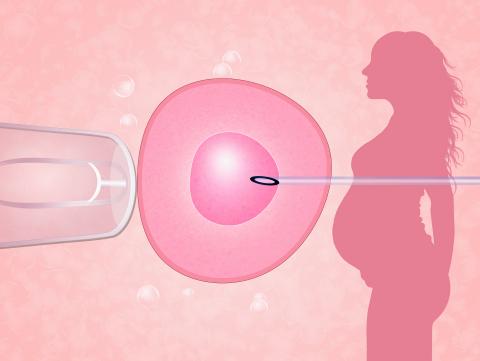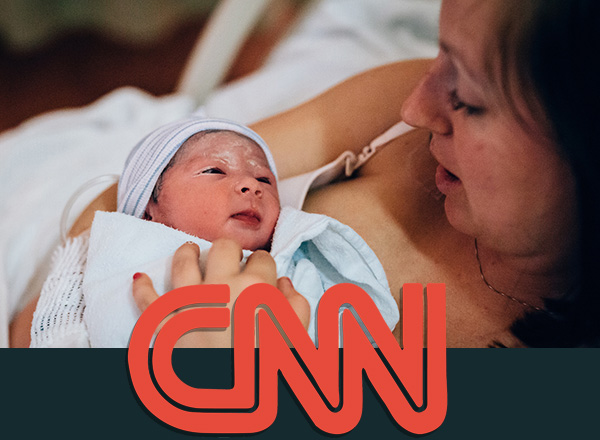In vitro fertilization: What are the effects on women's health?

Like all medical practices and treatments, the process of IVF can also involve some health risks. What is important, however, for a couple who needs to proceed to IVF in order to have a child, is to be properly informed, and not postpone or fear the process for the wrong reasons. The gynecologist - obstetrician and IVF specialist, director of the Assisted Reproduction Center EmBIO, Dr. Thanos Paraschos, explains that any dangers can be minimized by the means that exist today. But what are those risks? We asked him and he responded.
Dr Paraschos, what are the problems that may arise during IVF?
In the past, to increase the success of IVF, we used to transfer numerous embryos. So the biggest problem we were facing was multiple pregnancy, which would automatically put the pregnant woman in the high-risk pregnancy class. The more embryos a woman is pregnant with, the greater the risk of complications such as premature labor, miscarriage, caesarean section, diabetes and gestational hypertension, preeclampsia, etc.
However, we now have methods that can increase the chances of conception, without the need to transfer many embryos into the uterus. By reducing the number of embryos transferred into the womb, we minimize the risks associated with multiple pregnancy. In addition, another problem which arises as a complication of IVF, is ovarian hyperstimulation syndrome, for which there is also prevention.
What is ovarian hyperstimulation syndrome?
Due to the use of high doses of infertility drugs, multiple follicular maturation can result, leading to ovarian hyperstimulation syndrome, which involves abdominal pain, abdominal bloating, nausea, vomiting, diarrhea and more rarely, decreased urination and shortness of breath. Those, in a few cases may require hospitalization. To reduce the chances of developing the syndrome, newer protocols and lower personalized dose regimens are now applied.
Are there any further complications?
There may be complications during oocyte retrieval – That is, suction of the follicles with a needle through the vagina. Rarely, occur complications such as bleeding, infections and injuries. Generally, the chances today of having complications during oocyte retrieval are low.
Does the risk of cancer increase due to the administration of IVF drugs?
The likelihood of a woman who does IVF to be diagnosed with breast, ovarian or any other type of cancer seems to be non-existent on the basis of existing bibliography. Moreover, IVF drugs are administered for a very short time, so the burden on the body is not as long lasting as in hormone therapies, that are administered during menopause, and some research shows that they increase the risk of cancer. In any case, before proceeding to IVF, we must do all the necessary examinations, mammography and gynecological testing to rule out the risk that there is already some neoplasia. We also take into account the family history of each woman. For example, in women with a personal or family history of breast cancer, we may suggest IVF in a natural cycle, a method in which no drugs are used. Finally, it is important to emphasize that from the research so far, it does not appear that the children who were born through IVF have more genetic abnormalities or other health problems.
Does pregnancy, resulting from IVF, always end up in cesarean section?
No. An ordinary delivery after IVF can also be done. Cesarean section is not the norm when IVF has been performed. It always depends, however, on the occasion, which is also the case for women who conceive normally.

